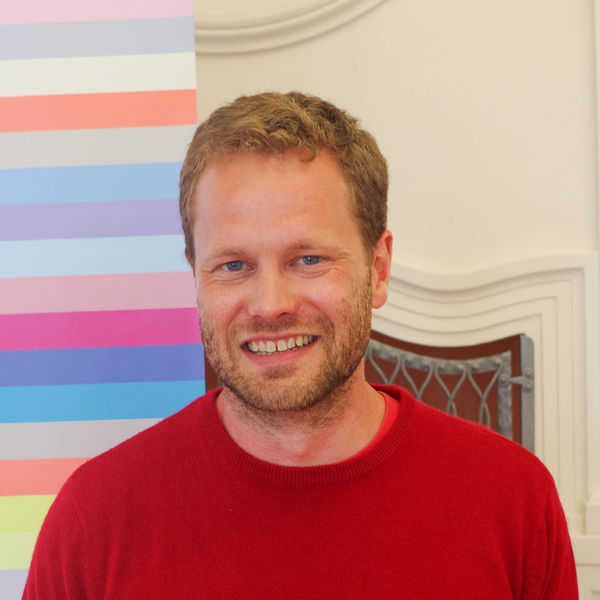
August - September 2014
Mail: JohnPaul.Newman(at)nuim(dot)ie
Dr John Paul Newman has completed PhD at the University of Southampton, on Croatia and the transition from Austria-Hungary to Yugoslavia (supervised by Professor Mark Cornwall). From 2008 until 2011 he has a post-doctoral fellow at the Centre for War Studies, University College Dublin. Since 2011 he has held the positiopn of Lecturer in Twentieth-Century European History at National University of Ireland, Maynooth; He has published on paramilitary violence and the legacy of war in the Balkans, and is the author of Yugoslavia in the Shadow of the First World War: War Veterans and the Limits of South Slav State-building, 1918-1941 (Cambridge University Press).
I am working on an analytical overview of communist revolution and counter-revolution in Europe, with a chronological focus is 1917-1923, the period of the so-called 'Red Wave'. For many Europeans, socialist revolution offered a means of ending an exhausting and costly war, and in this respect it represented a rival utopia to the one proposed by American president Woodrow Wilson at the beginning of 1918. But just as it has been in Russia itself, the revolutionary promise of 'no more war' ignited instead a renewed phase of conflict: the clash between revolution and counter-revolution overlapped and prolonged the final stages of a long, total war, and it contributed to the drastic transformations in the political and social landscape of Europe. The 'Red Wave' and the period of revolution and counter-revolution created a new political mobilization across the continent, filling the political and ideological vacuum left at the end of the Great War by the disintegration of continental empires. 1917-1923 thus marks the real beginning of the era of mass politics in many parts of Europe, and the opening of the twentieth century's 'age of extremes'. The violent confrontations of this period throughout Europe set the precedent for the zero sum political and ideological equations that would undermine democratic and liberal politics in the following decades. My research is divided into three sections. It begins with the origins of both revolution and counter-revolution inside revolutionary Russia itself, showing how soldiers and POW's of the Great War became caught up in the revolution and fighting in the east. The second, main section of the article shows how revolution and counter-revolution played out in war-torn Europe itself during 1917-1923. It charts the peasant unrest in central Europe during 1917-1918, the revolutions and counter-revolutions of 1918-1919 in Berlin, Bavaria, Hungary (including the interventions of Romanian and Czechoslovakian armies), and Slovakia, the conflicts against Bolshevik forces in Poland and the Baltics during 1919-1921, through to the failed communist revolt in Bulgaria in 1923, the point commonly considered the passing of the 'Red Wave' in Europe. The final section presents an 'epilogue' in which the period of revolution and counter-revolution is closed and the Wilsonian settlement is consolidated throughout the continent. But just as revolution and civil war created a militarized and radicalized political culture in the Soviet Union, so the battles between revolutionary and counter-revolutionary forces in Europe during 1917-1923 polarized politics into oppositional and confrontational blocks. The spectre of revolution continued to loom large in the political imaginary of the right in Europe throughout the interwar period. Indeed, it was often evoked as a means of enforcing repressive legislation, or for the justification of a rightwards course in national politics. The period of revolution and counter-revolution therefore drastically undermined liberal political institutions throughout Europe, creating a powerful impulse towards the authoritarian or radical right until the beginning of the Second World War.
Yugoslavia in the Shadow of the First World War: War Veterans and the Limits of South Slav State-building, 1918-1941 (under contract with Cambridge University Press, due to appear in 2015).
Sacrifice and Rebirth: The Legacy of the Great War in East-Central Europe (editor, with Mark Cornwall), (forthcoming, Berghahn: 2015).
The Great War and Veterans' Internationalism (editor, with Julia Eichenberg), (Palgrave Macmillan, 2013).
Croats and Croatia in the Wake of the World War, Transactions of the Royal Historical Society (accepted, forthcoming, December 2014).
Nationalism (Pre-war), 1914-1918 Online: International Encyclopaedia of the First World War (accepted, forthcoming, October 2014).
Civilian and Military Power in South East Europe, 1914-1918 Online: International Encyclopaedia of the First World War (accepted, forthcoming, 2014).
Through Snow and Red Fog: South Slav Soldiers in Revolutionary Russia and Beyond', article in Irish Slavonic Studies, 23 (2011).
War in the Balkans 1914-1918' (review article), War in History, 18/3 (July 2011).
Serbian Integral Nationalism and Mass Violence in the Balkans 1903-1945, Tijdschrift voor Geschiedenis, 124 (2011).
Post-Imperial and Post-War Violence in the Kingdom of Serbs, Croats, and Slovenes 1917-1923, Contemporary European History, 19/3 (August 2010).
Introduction: Aftershocks: Violence in Dissolving Empires after the First World War (co-authored with Julia Eichenberg), Contemporary European History, 19/3 (August 2010).
Josip Glaurdić, The Hour of Europe: Western Powers and the Breakup of Yugoslavia, English Historical Review (forthcoming).
Paul Mojzes, Balkan Genocides: Holocaust and Ehtnic Cleansing in the Balkans in the Twentieth Century, reviewed for H-Soz-u-Kult.
Rory Yeomans, Visions of Annihilation: The Ustasha Regime and the Cultural Politics of Fascism 1941-1945, reviewed for H-Soz-u-Kult.
Geoffrey Swain, 'Tito: a Biography', English Historical Review, 128/531 (April 2013).
Mark Biondich: The Balkans: Revolution, War, and Political Violence since 1878, War in History, 19/3 (July 2012).
The full list of publications can be found on the website of the Maynooth University, Ireland